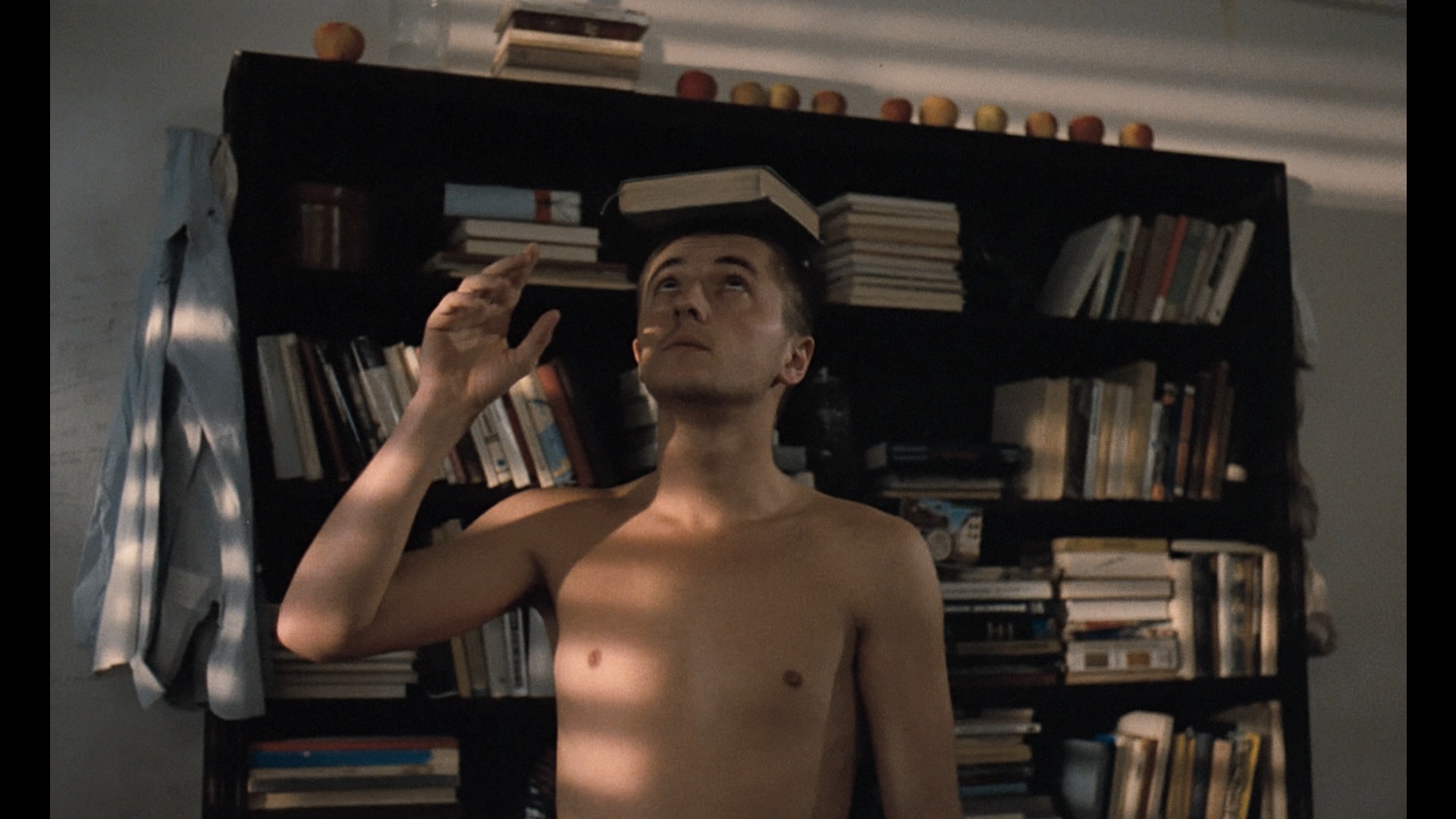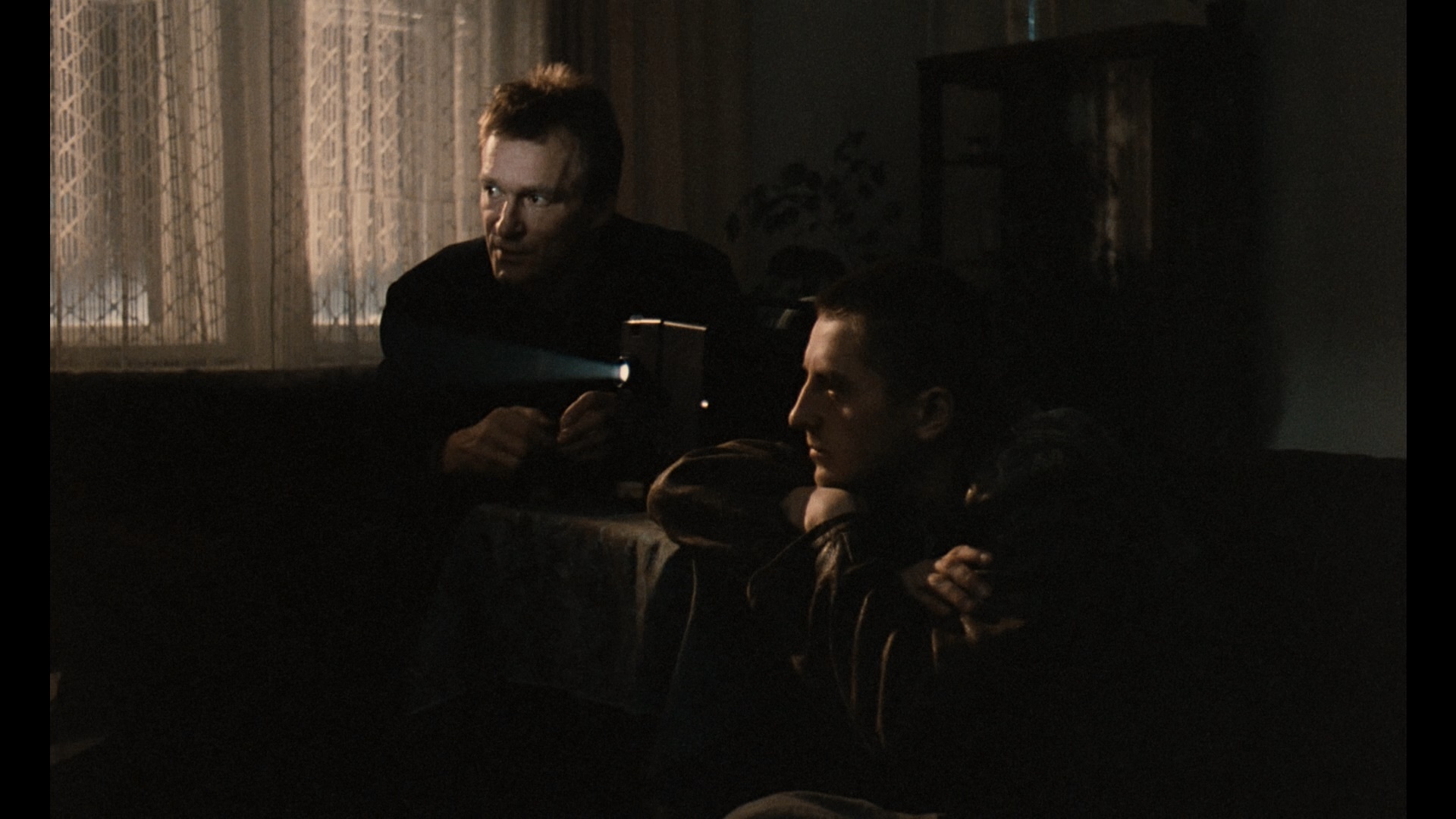
Color, 1991, 108 mins. 27 secs.
Directed by Martin Sulík
Starring Maria Pakulnis, György Cserhalmi, Géza Benkõ, Iva Bittová
Second Run (Blu-ray) (UK R0 HD) / WS (1.66:1) (16:9)

Color, 1991, 108 mins. 27 secs.
Directed by Martin Sulík
Starring Maria Pakulnis, György Cserhalmi, Géza Benkõ, Iva Bittová
Second Run (Blu-ray) (UK R0 HD) / WS (1.66:1) (16:9)
 established for bringing
established for bringing  key films from the wealth of Czechoslovak cinema to a much wider range of viewers, Second Run throws a bit of a curve ball with Tenderness, originally entitled Neha. The title might imply a touching family drama or romance, but that's definitely not what you get here with an elusive and fascinating allegory made as the country was emerging from a long period of Communist rule in the aftermath of 1968's Soviet invasion. The film marked a notable solo feature debut for director Martin Sulík, who continues to turn out significant Slovakian films on a regular basis to this day.
key films from the wealth of Czechoslovak cinema to a much wider range of viewers, Second Run throws a bit of a curve ball with Tenderness, originally entitled Neha. The title might imply a touching family drama or romance, but that's definitely not what you get here with an elusive and fascinating allegory made as the country was emerging from a long period of Communist rule in the aftermath of 1968's Soviet invasion. The film marked a notable solo feature debut for director Martin Sulík, who continues to turn out significant Slovakian films on a regular basis to this day. 
 With its eccentric score and love triangle premise, Tenderness feels like it could tip over into thriller territory or a dark melodrama at any point but never quite gets pinned down that easily. The sudden emotional or physical outbursts are easy to interpret as a climate where the entire populace seems to be suffering from some indistinct form of PTSD, an aspect played up with the occasional moments of viewing home movies that segue into some unsettling sexual territory on a couple of occasions. The actors all do solid work here with Pakulnis getting the most showy material with a performance that feels like it could have been written for someone like Hanna Schygulla, and on the technical front it looks wonderful with those golden blasts of indirect sunlight that seem to be particularly popular in Slovakian productions.
With its eccentric score and love triangle premise, Tenderness feels like it could tip over into thriller territory or a dark melodrama at any point but never quite gets pinned down that easily. The sudden emotional or physical outbursts are easy to interpret as a climate where the entire populace seems to be suffering from some indistinct form of PTSD, an aspect played up with the occasional moments of viewing home movies that segue into some unsettling sexual territory on a couple of occasions. The actors all do solid work here with Pakulnis getting the most showy material with a performance that feels like it could have been written for someone like Hanna Schygulla, and on the technical front it looks wonderful with those golden blasts of indirect sunlight that seem to be particularly popular in Slovakian productions.  releases. The LPCM 1.0 mono audio track (with optional English subtitles) is also crystal clear. The new featurette "On Tenderness" (26m13s) features Sulík, screenwriter Ondrej Sulaj, composer Vladimír Godár, cinematographer Martin Strba, and "dramaturgist" / script editor Zuzana
releases. The LPCM 1.0 mono audio track (with optional English subtitles) is also crystal clear. The new featurette "On Tenderness" (26m13s) features Sulík, screenwriter Ondrej Sulaj, composer Vladimír Godár, cinematographer Martin Strba, and "dramaturgist" / script editor Zuzana  Gindl-Tatarová sharing thoughts on the increasing liberation at that time to write openly without having to code any dangerous ideas to avoid censorship. They also go into the general climate of the time, the meaning of the title, the initial script (as The Mist) that was completely jettisoned apart from the opening scene, and the commentary on the generation gap that became a major focus of the entire narrative. Also included is "Hurá" (27m55s), or "Hooray," Sulík's impressionistic collage depicting the rise of Communism in his homeland using photos and newsreel footage intermingled with film clips and reminiscences of an older male narrator. As usual, you also get an essential insert booklet -- in this case featuring liner notes by author Peter Hames -- featuring useful context for the director's previous and subsequent career, the state of filmmaking at the time, other artistic and political influences swirling around, and the messages viewers would have picked up on during its initial release.
Gindl-Tatarová sharing thoughts on the increasing liberation at that time to write openly without having to code any dangerous ideas to avoid censorship. They also go into the general climate of the time, the meaning of the title, the initial script (as The Mist) that was completely jettisoned apart from the opening scene, and the commentary on the generation gap that became a major focus of the entire narrative. Also included is "Hurá" (27m55s), or "Hooray," Sulík's impressionistic collage depicting the rise of Communism in his homeland using photos and newsreel footage intermingled with film clips and reminiscences of an older male narrator. As usual, you also get an essential insert booklet -- in this case featuring liner notes by author Peter Hames -- featuring useful context for the director's previous and subsequent career, the state of filmmaking at the time, other artistic and political influences swirling around, and the messages viewers would have picked up on during its initial release.![]()